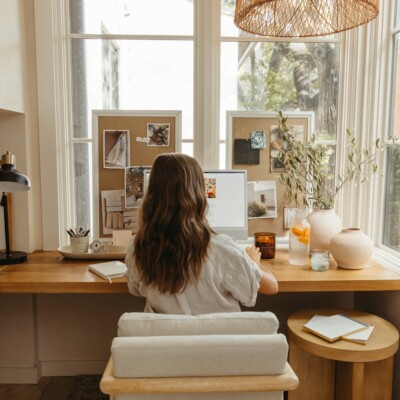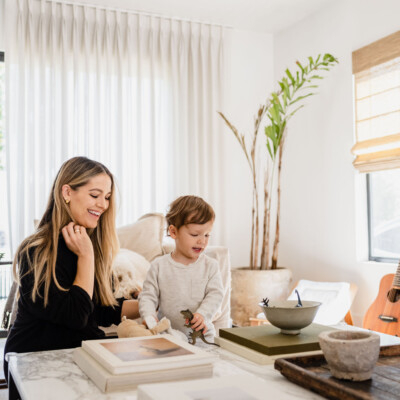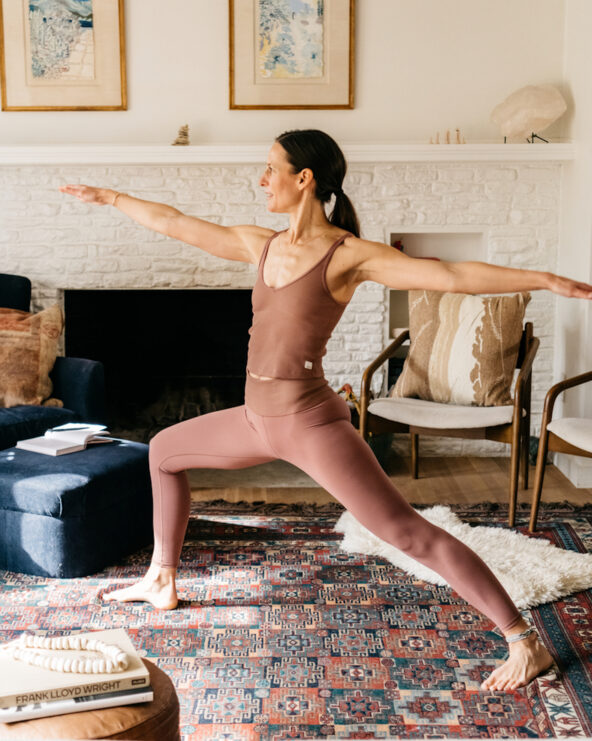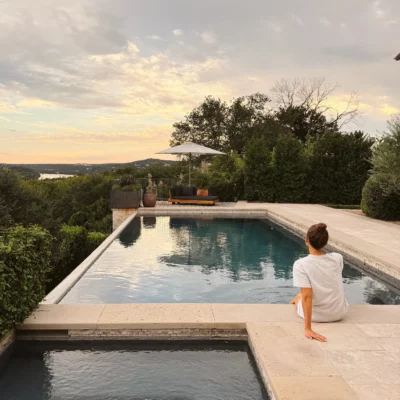When I first met Paola, despite her obvious traits (radiant, regal and absolutely stunning), what captured me was her presence. She floated across the room, carrying herself with awareness and grace. Though she stood out, she looked like she belonged, displaying beauty with every step. Knowing her is a gift. She leads by example, reminding me that I belong too.
Paola is an affectionate mother and wife; portrait and lifestyle photographer; founder and creative director of Fanm Djanm; self-proclaimed fairy; and so much more. Through exceptional style, transparent stories and a deep love for dark skin, she lives as an anomaly, defying many societal norms. What fascinates me most is her ability to intertwine the many facets of her life in a way that feels seamless and purposeful.
“I want the 8 year old girl who used to be me to understand that she went through a lot to get here. I don’t ever want to forget that girl. Because if I do, I’ll lose a big part of who I am. I’m not just shiny things and colors. I have a story.”
Born in Petion-Ville, Haiti; she grew up between her homeland and Newark, New Jersey, places that presented a jarring dichotomy between privilege and discomfort, familiarity and chaos. Her life is filled with dimensionality, from her rich, colorful photographs to her growth into a confident, infectious woman. Creativity leaks into every facet of her life and I believe it all ties back to her beautiful mind. She is patient with herself, curious about her intentions and continuously puts herself in spaces that feel uncomfortable.
We dove deep into assimilation, her dreams and creative processes, how she balances everything and the little girl that healed her. As she told me her story, even through pain and struggle, her face remained lifted.
She looks for beauty in everything and she finds it.
Read on for more on Paola’s story and to hear her voice visit the Woke Beauty Podcast.
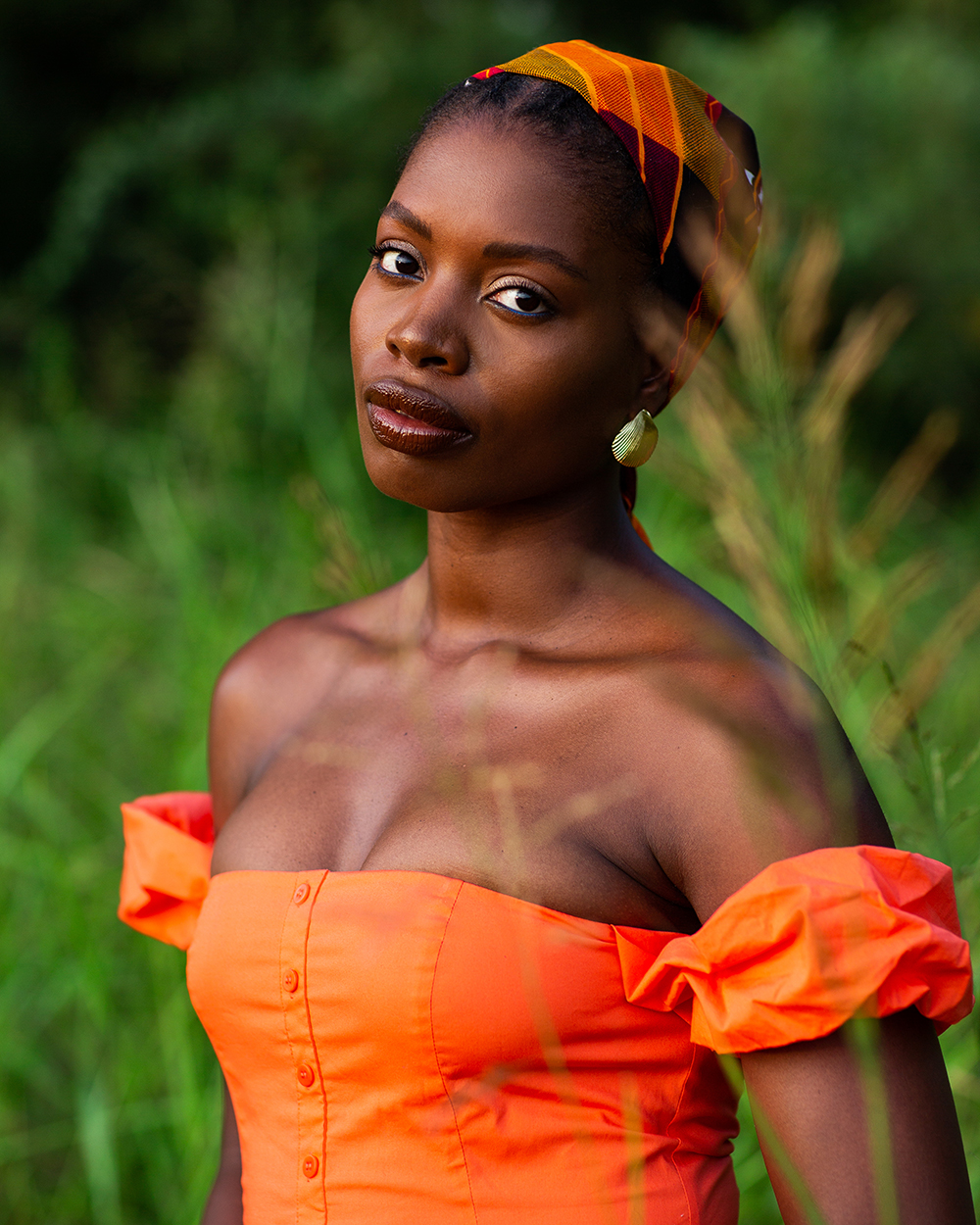
You were born in Pétion-Ville, Haiti and moved to Newark at a young age. You’ve talked about how shy you were and the difficulties around transitioning. What was it like assimilating into American culture?
Relatively speaking, I had a privileged life in Haiti. It wasn’t perfect but in comparison to the state of our country, it was a good life. We went from living in a two story house with people cooking for us and doing our laundry to living in a one bedroom apartment–a family of four–in Newark. There were a lot of different components. All of the luxuries we once knew weren’t there anymore. My mom had been so used to her social life in Haiti and then, suddenly, she was in a new, foreign country with two children. When you’re going to America you think you’re going to find a better life. Maybe for her, it felt more like taking steps back.
Where did your dreams begin?
I was always trying to learn and understand how life was outside of Newark. My view of the world in Haiti was so limited and strangely even more so in Newark. I had a friend from Nigeria in high school. We used to go to the local pizzeria. It was to-go only. They didn’t have any seating. But we used to get a dollar slice and grab this random table with two chairs around the corner. We’d sit there and dream that one day we’d be sitting at a cafe in New York eating real meals and it would be lovely. To me, that was so beyond anything that I could do. So, when I look at my life, I’m amazed. I went to a nice university which is where I met my husband. I went back to that nice university and gave a Ted talk. How does that happen, you know? But it did.
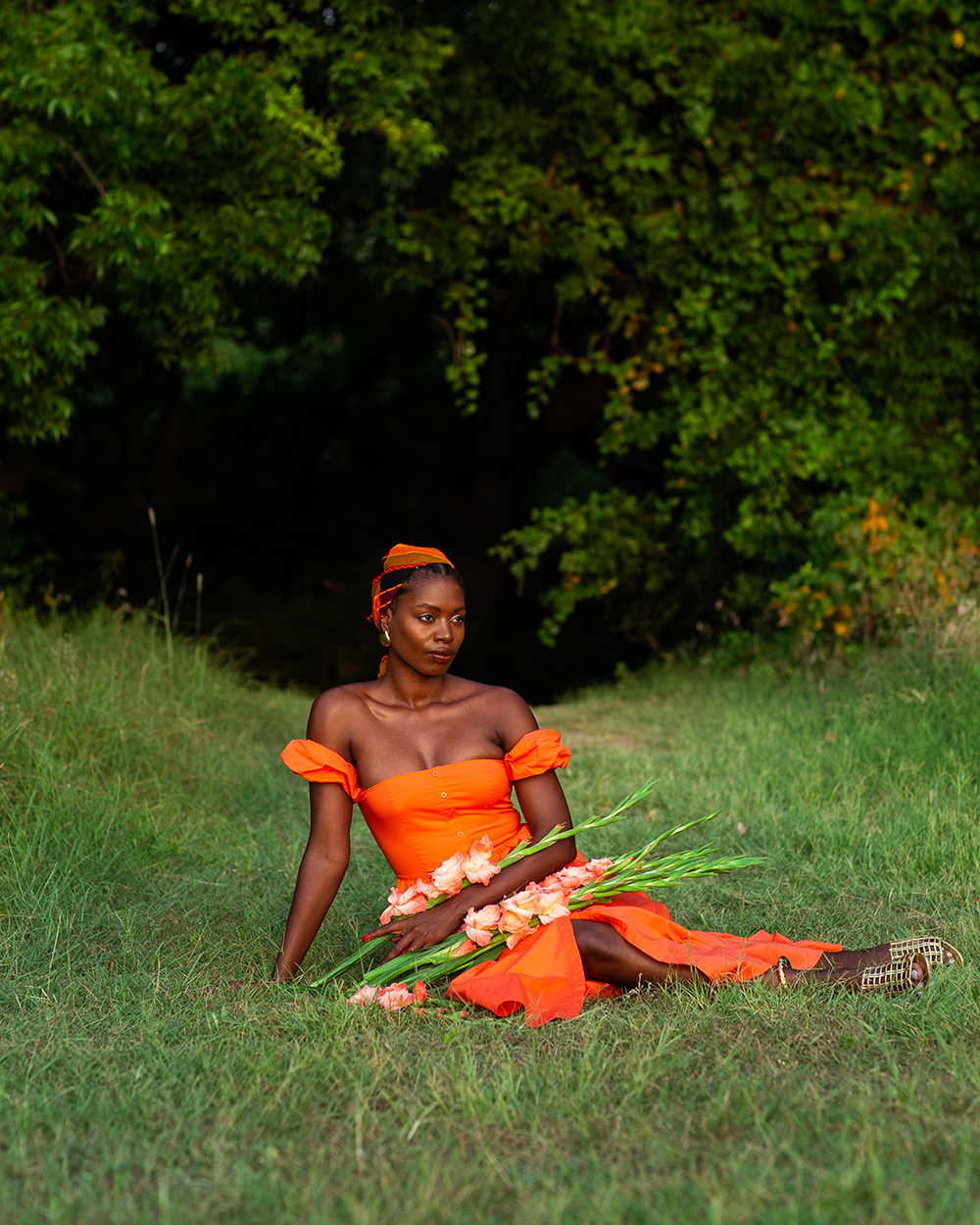
You embody confidence. How has that element of your identity evolved?
When people started to tell me that I was confident, honestly, for a while I actually wasn’t. I was putting myself in situations where I didn’t feel comfortable nor confident engaging in those spaces. But after I had some accomplishments and survived I started getting used to it – to those uncomfortable spaces. It started to bother me less. That evolution is different than putting on a red lipstick and a loud outfit. I started putting on those looks before I felt confident. Those aesthetic choices are an extension of me now but then, it was just me trying to find a way to feel good. Confidence, in general, is always just…becoming.
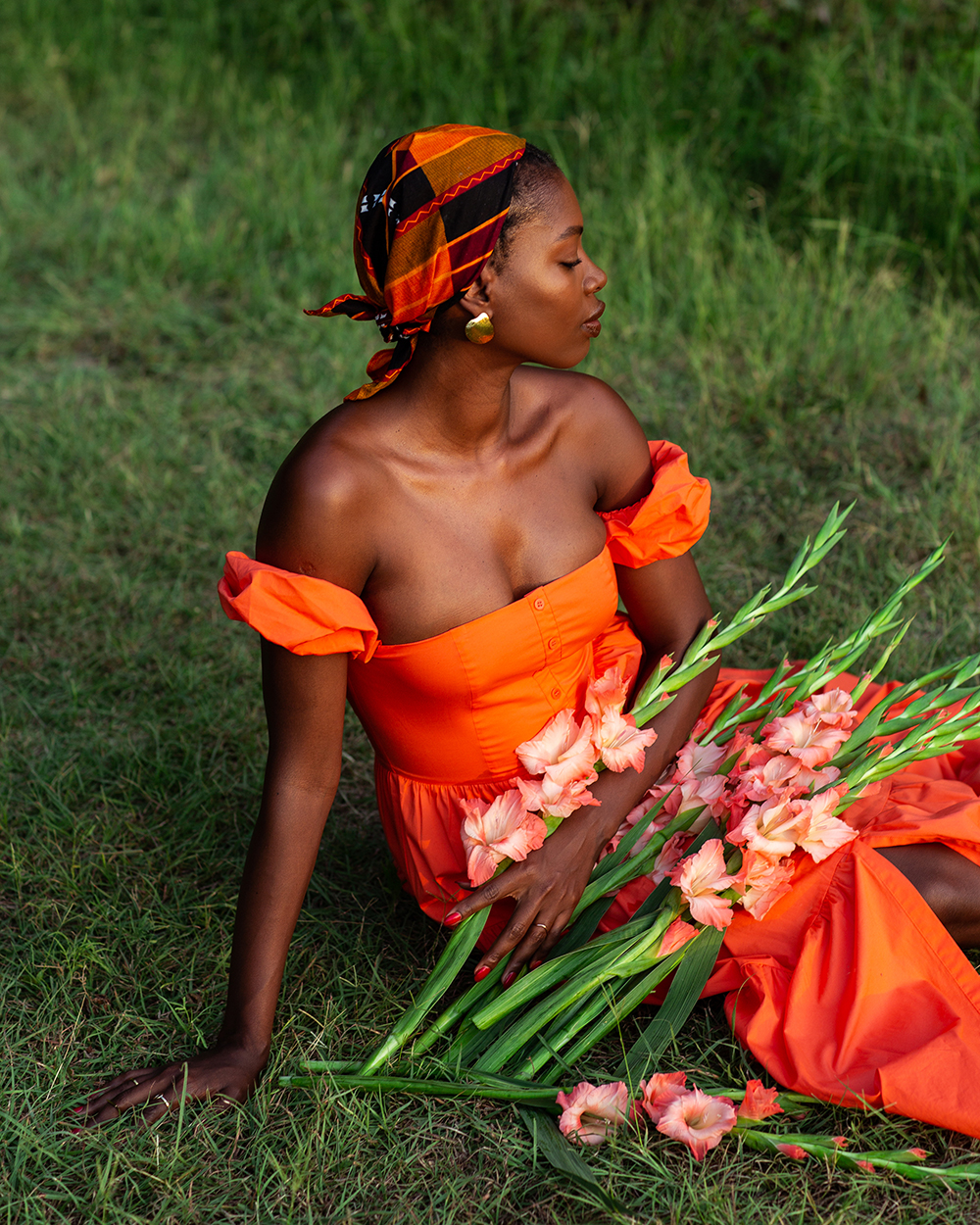
What does it take to grow authentically?
I would consider myself lucky in general, but I really believe that your opportunities are there for you if you open your eyes to see them. There are so many things about my growth that developed because of me. They weren’t given to me. It wasn’t obvious. I just had to open my eyes. Moving my company from my little studio apartment to an actual space is a great example of that. It wasn’t even an office space, just a corner of a vintage shop. They didn’t even have an opening. I just thought it looked like they had space for me so I asked if I could arrange a sub lease. I wrote the agreement myself. Things work out and you become more successful when things are not that obvious. You have to see the potential in something. It’s not already there for you.
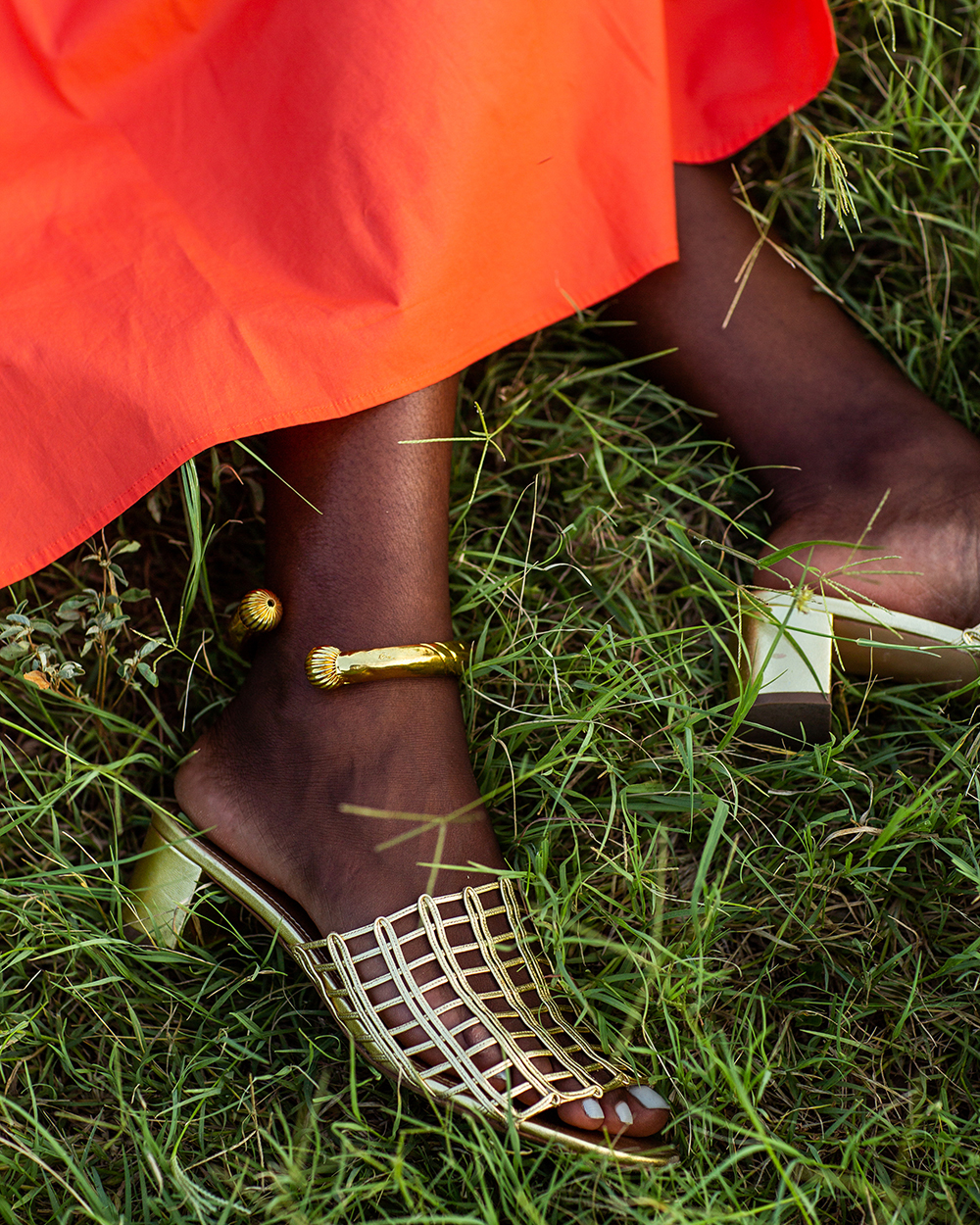
It seems like you are always finding new ways to use color.
Growing up, I liked color because I felt like it was my way of speaking to the world without having to open my mouth. I could just show up and feel represented. I’ve gotten a lot better at using color. I have found love in putting colors together that you wouldn’t expect go well together. Sometimes I’ll arrange an array of neutrals with a pop of color. Sometimes I’ll put earth and rich tones together. I like playing and I carry that over to Fanm Djanm. In the music video I directed, the color was really intentional for me. The scenes became more important and creative than literally mixing colors. I’ve begun appreciating neutrals and blacks and whites on another level because I’ve started to understand texture. There are a lot of different elements that make something denser than just the color. I love how it all plays together.
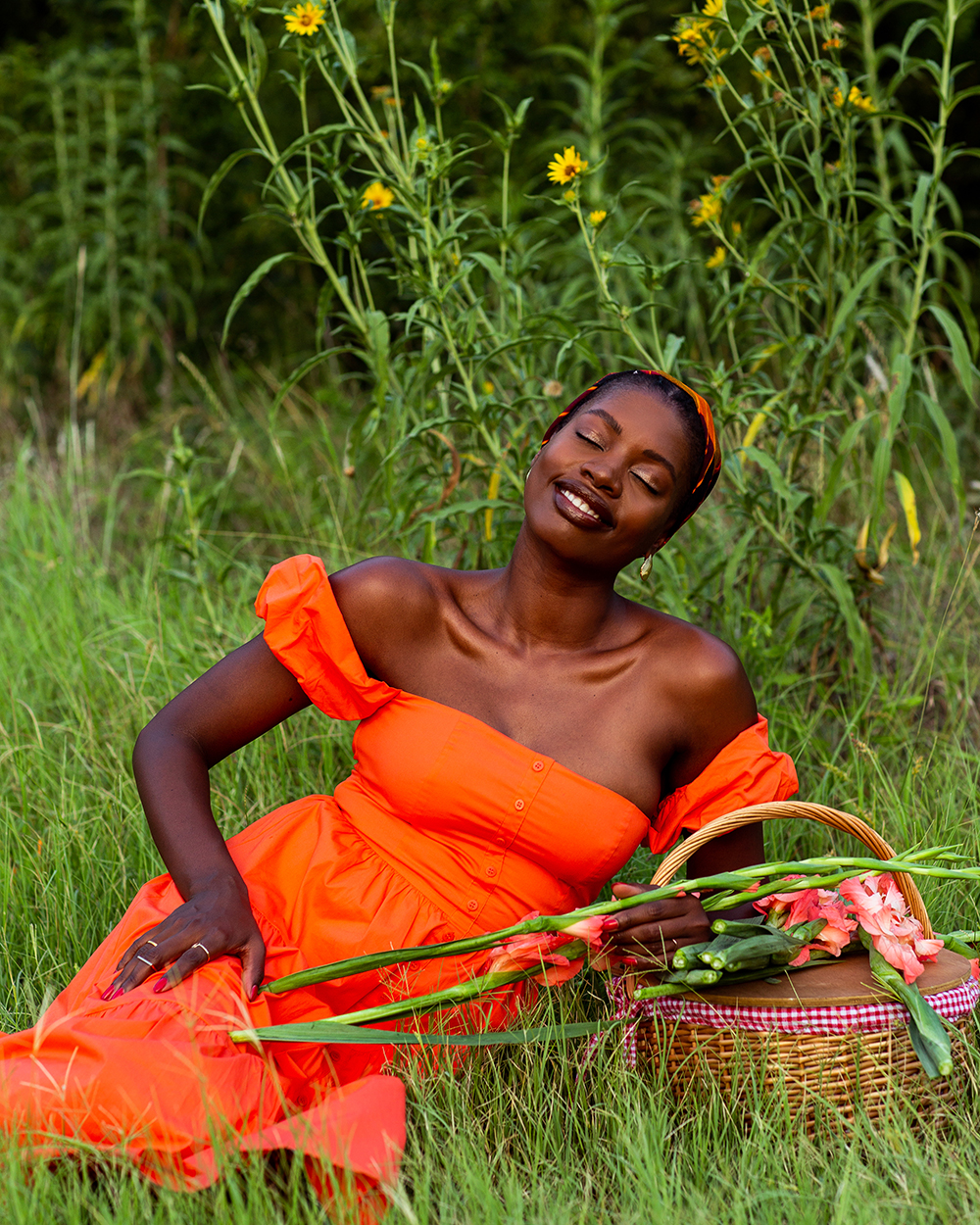
You acknowledge and recognize that there is pain in our world. But you see beauty everywhere. How do you find it? How do you choose it?
I have to. I’ve lived ugliness first hand and I see it. But I feel like there is so much light and so much hope and so much beauty. I can think of moments living in Harlem, seeing homelessness and filth but choosing to fixate on flower petals on the cement ground. I get mindful in those moments. We can get sucked into all of the negative things but then that’s all we see. Once you’re there, it’s really hard to get out. If you don’t look at the bright side even when it becomes really, really bright, you’ll get to a point where you can’t even see it anymore.
Can you tell us of a time when you had to find the bright side?
One of the darkest times in my life was my birth story. I haven’t talked about it. It was the complete opposite of what I could have ever imagined. When Zuli was born, she spent three months in the NICU. I was there through it all but the nurses were taking care of her most of the time. I didn’t think she would know who her mom was. Every time I went to see her I would say, “Hi, I’m your mom.” But she was surrounded by people and scents who weren’t me. She was under developed, tiny and fragile. The first time the nurse asked me if I wanted to give her a bath I told her I couldn’t. She was just too small. I felt useless. I remember thinking to myself: your body wasn’t good enough to give full term to a baby and now you won’t even take responsibility to bathe your own child because you’re scared.
My pregnancy happened completely different from how I wanted it to. For a while, even hours at a time, I’d replay them rolling me away into the operating room. I wasn’t ready for that trauma. I feel like time and patience with myself–just listening to my thoughts–really helped me. Then, one day I decided to come up with a song for Zuli. I was singing it for her and I thought to myself: maybe I’d found the flower petals.
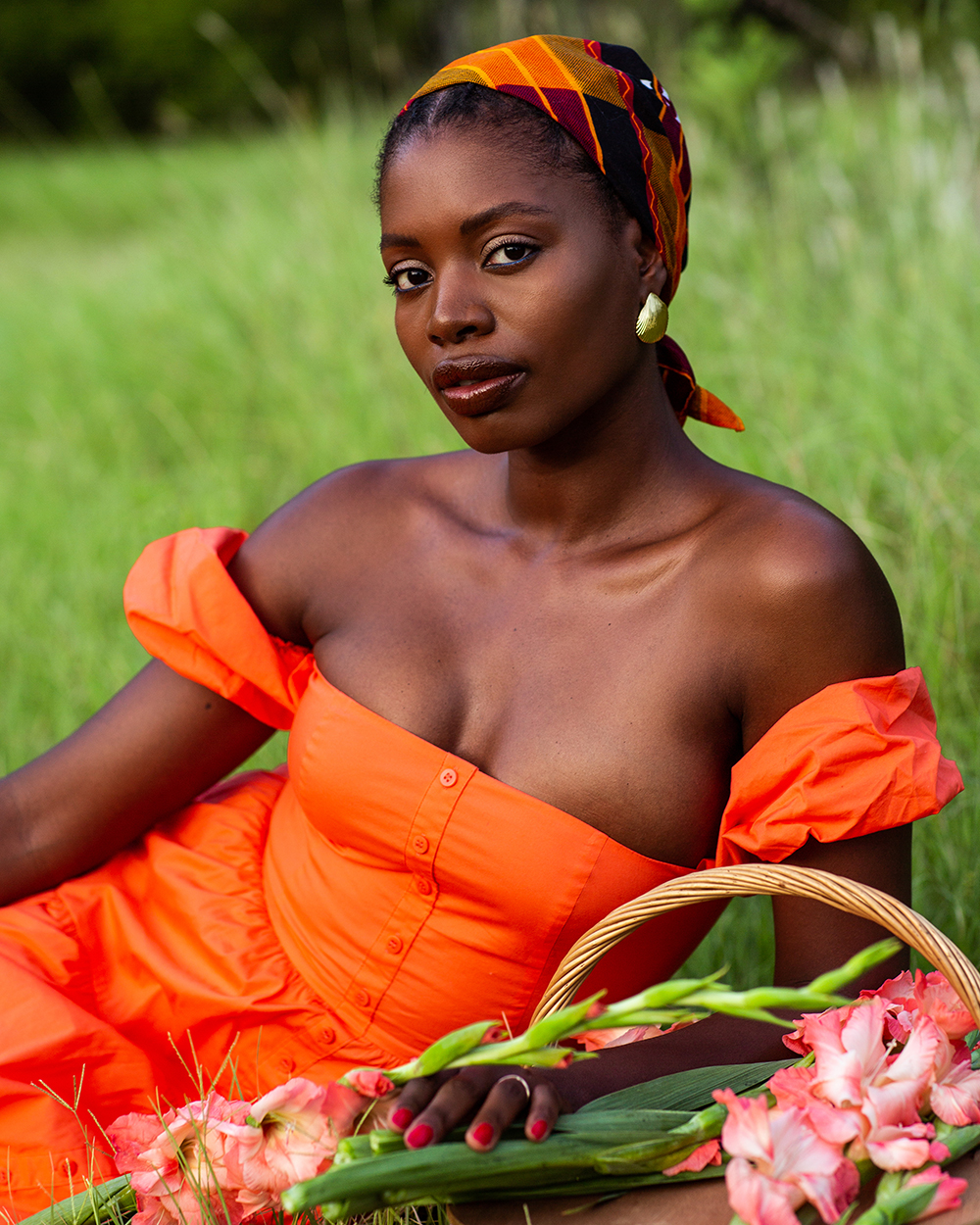
How did you heal from that phase of your life? What did that take and where did you find the energy?
Maybe a lot of the strength came from Zuli. Maybe I didn’t have a choice but to have the strength. Because when I got home she was there. And she was already doing so many things that represented love. I could tell that she loved me. She knew who I was. That meant everything to me.
The first time she’s ever seen me cry (I’m usually a silent crier) was when I got the phone call that my friend had passed away. Her sister FaceTimed me. I was holding Zuli until she told me that I might want to put her down. I knew something was wrong but I refused for it to be that. The scream came out of my body without my brain registering what was happening. Zuli had never seen me that way. I had never seen myself that way. She started crying so hard as if she was feeling my pain to the point that my brother had to take her to a different room. It happened a few months before her 2nd birthday but even now, sometimes she’ll tell me, “Mama, cry?” and then she’ll say my friend’s name. She remembers that day and she’s just 2 years old.
Her love and her being there changed things. I don’t know if I would’ve been able to pull myself out if it weren’t for her.
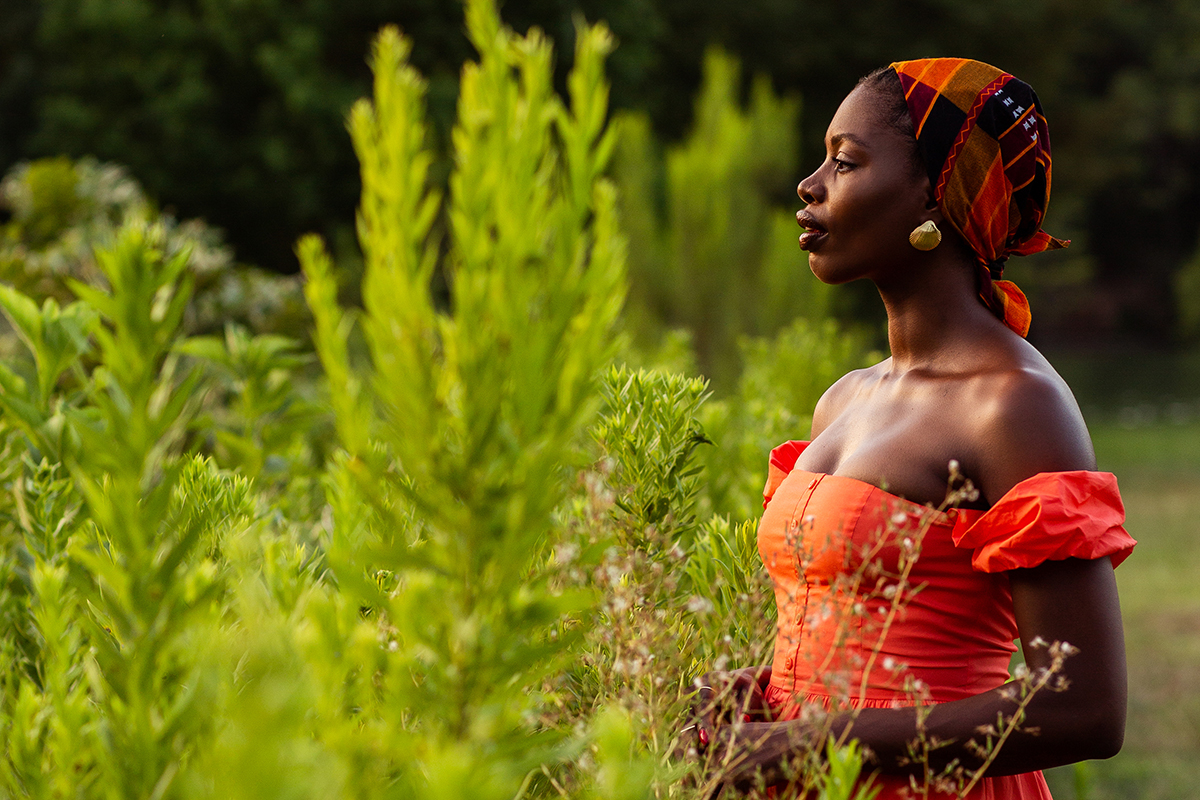
Between family, creativity, nourishment and Fanm Djanm, you have a lot going on. How do you run your enterprise and what is your creative process like?
I don’t feel complete or whole if I’m only doing one thing. I’ve always been like that. I’ve always felt that there is something else I could be doing. For my self portraits, sometimes it just takes five minutes because that’s really all the time I have. If I have the idea already then it’ll come easily. But then there are other things that are clearly long term projects. I’ll continue to think about them continuously. The ideas are birthed and continue growing until I get to the point where I need to act right then and there.
There are times I feel guilty. I was traveling a lot before and even now, I’ll lock myself in my office to work and realize I could be playing with Zuli in the yard and she could be feeding me rock smoothies. But I will always find the time. I’m really lucky to be with a partner who has also found success and who shares in my values. He takes care of himself. I really believe that by us having a well rounded life, we’re able to provide Zuli with a better life and a better example for life.
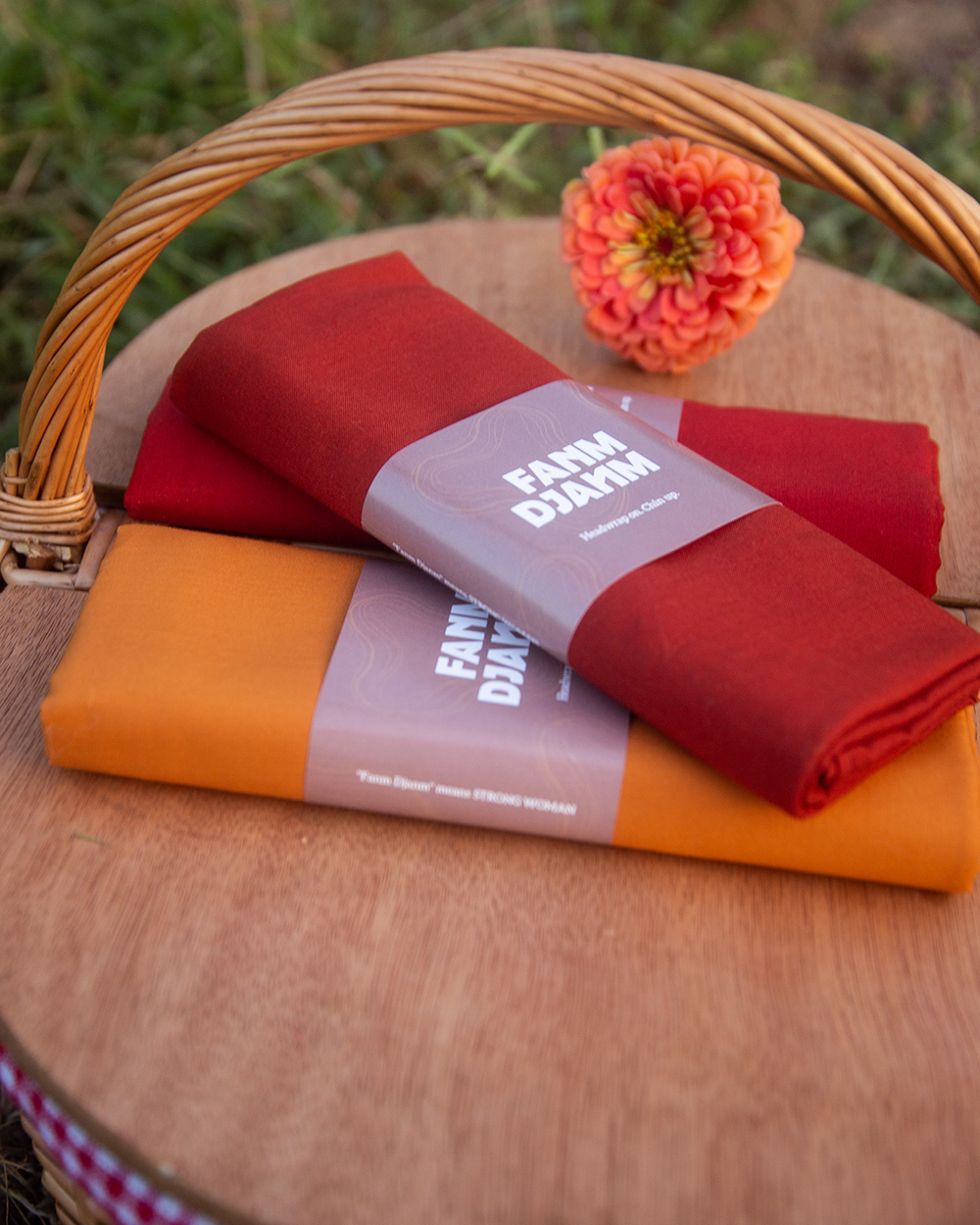
What is next for Fanm Djanm? How are you leveling up?
There is so much in store for Fanm Djanm, especially now that we’ve moved to Austin. The possibilities are endless but I’m really taking my time. It’s one thing to start something with a lot of passion. It’s another thing to maintain that thing and to continue that thing with the same amount of passion.
What I love about running Fanm Djanm is that I’m constantly challenging myself and questioning things. It keeps me on my toes. I feel alive. It’s very rewarding because I didn’t have a path or a mentor to teach me. I remember thinking that I didn’t have to take the main road. The side roads are cool too. And that’s how I’d get lost in New York. That’s how @findingpaola came to be. Instead of taking the roads that everyone else was taking I’d explore the other streets. I’d find the coolest things. I really think having a specific blueprint doesn’t always mean success. I think for me, success is determined by how happy I am at the end of the day without anyone looking at me or any lights shining on me. Just me with myself.
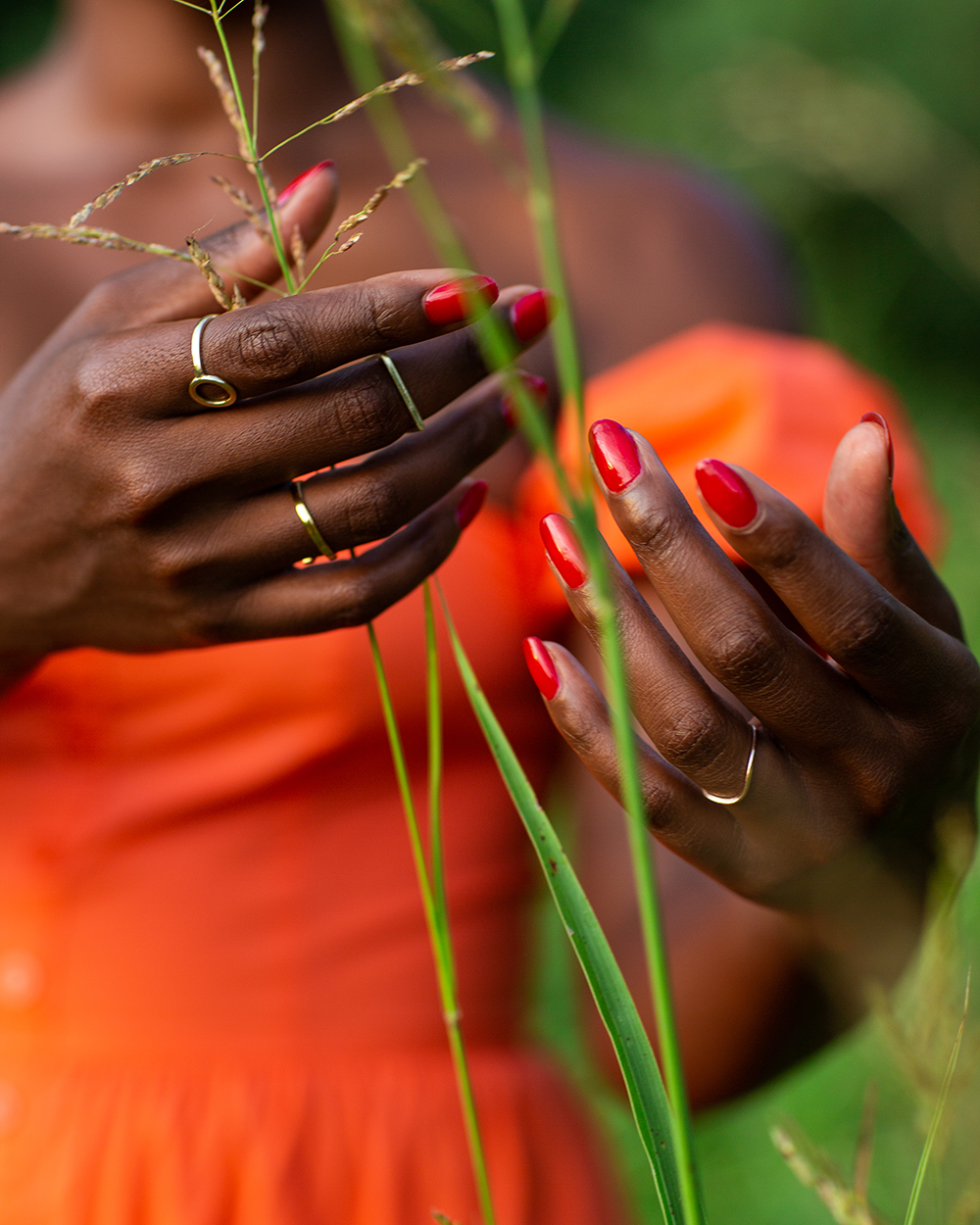
What are your favorite resources for learning?
I love reading works by black women like Octavia Butler, Chimamanda Ngozi Adichie and Edwidge Danticat. But for me, the best way to learn is to meet new people with an open mind because that is how we really grow. The world is connected in many ways. If we only consume things that we grew up around and agree with then how do we really have conversations around change?
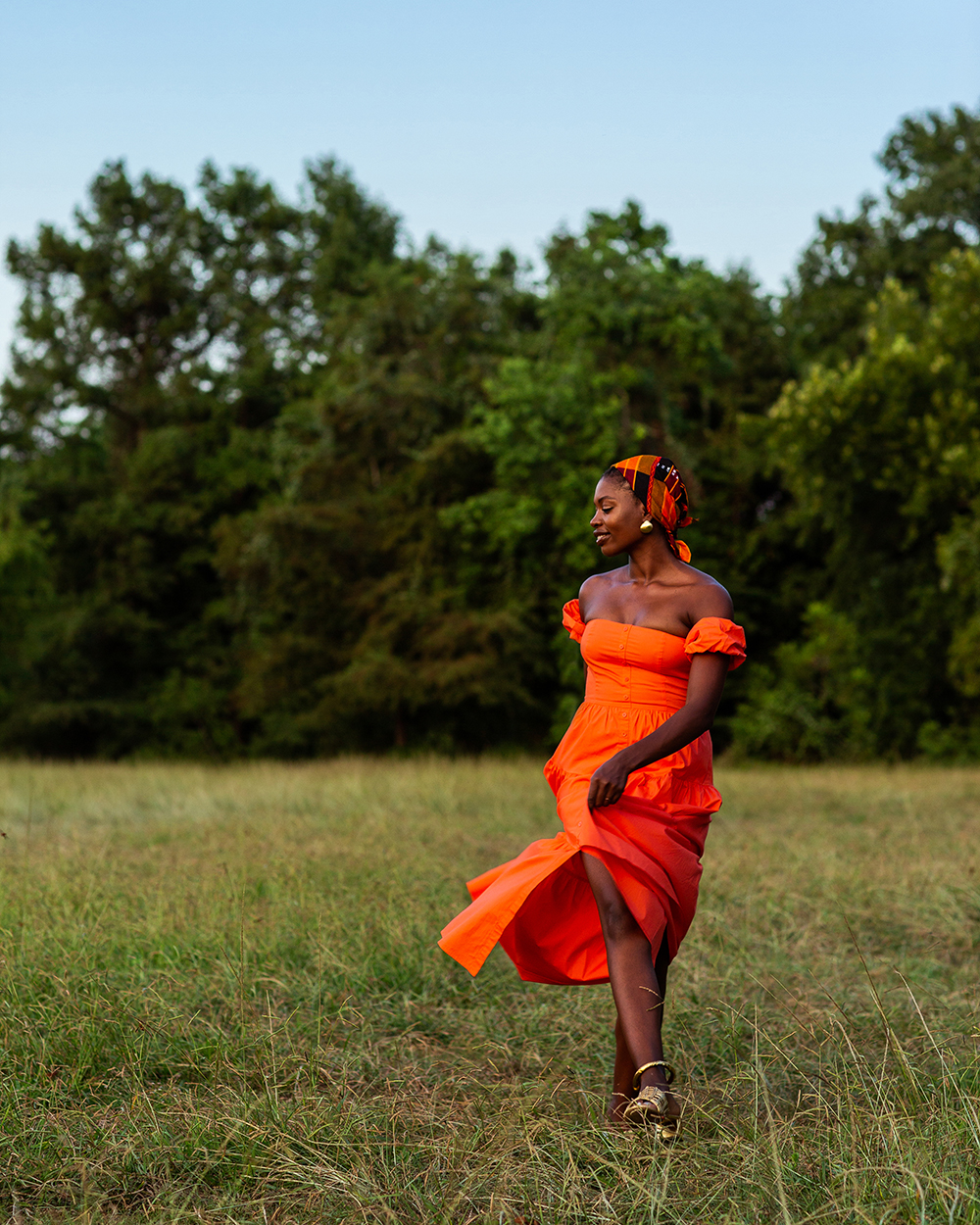
How do you want to make the world a better place? What is your vision for yourself?
I believe that once you are capable, once you have found your voice and you’re able to speak your thoughts and people are listening to you, it’s really important to help others find theirs…to show them that they also have a voice. There are a lot of little girls like me out there who don’t have a support system. I want to find a way to create more opportunities for young, Black, creative women. I think, by doing that, I could reach beyond my family and my community. On a personal level, I don’t need anything glamorous. I just want to be happy at the end of the day.
What are you passing on to Zuli?
I want to teach her that the world is hers but she has to work for it.


